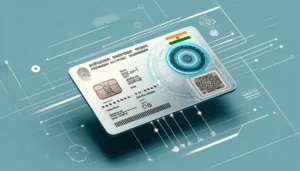
Price: [price_with_discount]
(as of [price_update_date] – Details)
“The wise man knows he doesn’t know. The fool doesn’t know he doesn’t know.” – Lao Tzu
What’s the most important step in fixing a puncture? It isn’t jacking up the car, or taking the wheel off, or finding the puncture.
There’s something more fundamental than any of those. Something without which you can’t even begin to fix a puncture.
The most important step is finding out you’ve got a puncture. Without that you can’t do anything. Instead of saying, “It’s just a bit bumpy, must be the road,” and carrying on, you must acknowledge that something has changed and you don’t know what that is.
If you don’t admit you don’t know what’s happening, you can never find out. If you don’t find out, you can never change it. The most important step, always, is admitting you don’t know. That’s the power of ignorance.
In this latest collection of real-life stories, Dave Trott provides lessons about problem solving and creative thinking that can be applied in advertising, business, and the wider world.
From the Publisher


I always learned more from stories than from lectures. This book is written for people like me.
There’s a story about an American student of Buddhism who travels to the mountains to see an elderly Buddhist master.
He wishes to learn from him, so they sit cross-legged on the floor as tea is served.
The student is nervous, he wants to impress the master with his knowledge. He starts telling him everything he knows about Buddhism.
The master begins pouring tea into the student’s cup.
The student mentions all the books he has read, every famous teacher he has studied.
The master continues pouring tea into the student’s cup.
The student mentions every monastery he has visited, he begins to get nervous as his cup begins to fill.
The master continues to pour tea into the cup.
The student is talking faster and faster about all the different forms of meditation he has tried, he can’t take his eyes off the cup which is now
full to the brim.
The master continues pouring and the cup overflows.
The master continues pouring as the tea runs across the table and down onto the floor.
The student shouts: “Stop, stop, why are you still pouring? The cup is full, it can’t take anymore.”
The teacher says: “Your mind is like this cup – it is so full there is no room for anything else. Like the cup, you must empty your mind before it can accept anything new.”
That is the problem most of us have.
We are scared stiff to let go of what we know, we acquire knowledge and cling onto it, consequently we can never learn anything new.
As Adlai Stevenson said: “Most people approach every problem with an open mouth.”
We feel we must be the first to offer a solution.
We think knowledge is strength and ignorance is weakness.
But all that actually ensures is we offer a solution from the range of options that already exist, we never learn anything new.
We never learn anything new because we never ask questions. We never ask questions because we’re afraid to say “I don’t know.” We never say “I don’t know” so we can never discover anything new. Our cup is full to overflowing.
Socrates was involved in a discussion with Meno, who believed his forceful opinion would win him the argument. Socrates said: “I am wiser than this man, for neither of us appears to know anything great and good, but he fancies he knows something, although he knows nothing; whereas I, as I do not know anything, so I do not fancy I do. In this trifling particular, then, I appear to be wiser than he, because I do not fancy I know what I do not know.”
Lao Tzu (the father of Taoism) put it more simply: “The wise man knows he doesn’t know. The fool doesn’t know he doesn’t know.”
What both of these men were saying concerns the way to approach a problem. Contrary to the conventional belief, there is actually weakness in knowledge and strength in ignorance.
Publisher : Penguin (10 August 2021)
Language : English
Paperback : 268 pages
ISBN-10 : 0143454315
ISBN-13 : 978-0143454311
Item Weight : 310 g
Dimensions : 21.6 x 13.5 x 1.5 cm
Country of Origin : India
[ad_2]



